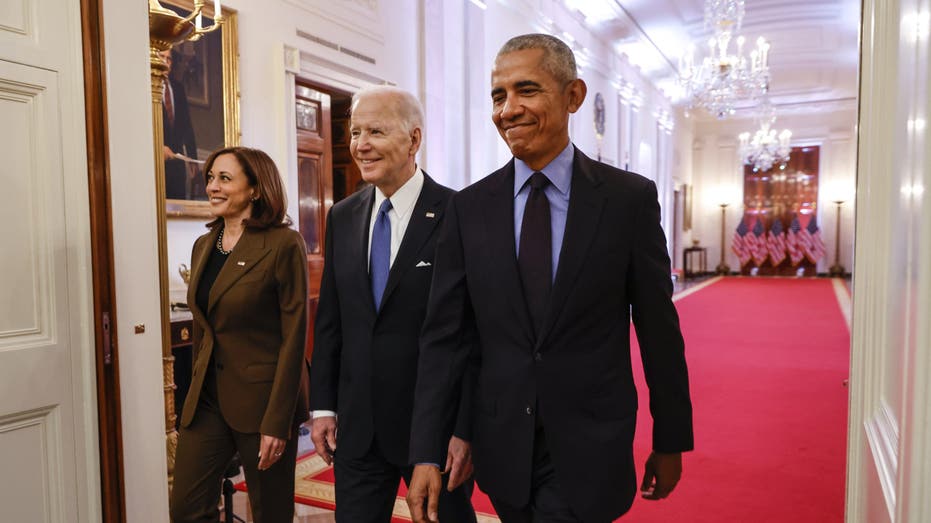Post-Assad Syria is a critical first test for the Trump Doctrine
There is a perception that the Trump administration will disengage from Syria entirely, leaving a vacuum. However, I am less convinced. If Trump is committed to repairing the mistakes from the Obama-era Iran deal, this could be his chance.

President Bashar Assad has fallen. The man who ruled his nation with astonishing brutality for 24 years, including throughout the Arab Spring uprising and ensuing civil conflict, has been overthrown only weeks after an unexpected and rapid surge by rebel forces under the command of Abu Mohammed al-Jolani.
There is palpable jubilation among the millions of refugees who have fled Assad’s oppression over the years. Although the country’s future remains complex, there is optimism that a future is once again possible.
But the celebrations are unlikely to last for very long. Following the inauguration of President-elect Trump, the new administration will find itself under tremendous pressure to pursue a delicate diplomatic approach to the new Syria, one which will hopefully aim to avoid the rise of a new ungoverned state-sponsor of terrorism, while also keeping the U.S. at a safe distance from the quagmire.
There are many vocal critics of Trump’s isolationist tendencies. But when it comes to Syria, these instincts may prove to be advantageous.
During the recent Doha Forum in Qatar, I had the opportunity to speak with a number of policymakers from across the region. Overwhelmingly, the perception seemed to be that the Trump administration would disengage from Syria entirely, leaving a vacuum. I am less convinced.
Inasmuch as the fall of Assad presents an additional element of instability in the Middle East, it also represents an interesting opportunity for the dealmaker-in-chief to work through allies and shift the balance of power in the region away from Iran and Russia. If Trump is committed to repairing the mistakes from the Obama-era Iran nuclear deal, this could be his chance.
American policy in Syria has long struggled to balance competing priorities. Under President Barack Obama, the focus on negotiating the Iran nuclear deal led to a de-prioritization of the Syrian conflict. This created opportunities for Iran and Russia to expand their influence in Syria, further complicating the region’s dynamics. Relations with Turkey, Washington’s key NATO ally in region, have been complicated by U.S. support for YPG/SDF militants, which are directly related to the Kurdistan Workers’ Party (PKK), a designated international terrorism organization. These missteps have left a legacy of mistrust that persists today.
But competition for influence in the region is shifting, opening new opportunities. The war in Ukraine has evidently taken its toll both on Russia’s treasury and military capacity, reducing its capacity to project power in Syria. Iran, meanwhile, faces growing regional pushback against its proxy networks, including Hezbollah. Gulf states and Turkey see a chance to reshape the regional balance of power in their favor. In this environment, the United States has an opportunity to leverage these dynamics to promote stability without committing to large-scale interventions.
A potential roadmap to success in Syria should emphasize concrete steps toward a new constitution, some form of democratic representation, a transitional government, and free and fair elections within 18 months, in accordance with UN Security Council Resolution 2254.
As a multiethnic state, Syria risks exclusion and persecution of minority groups. A stable and functional Syria requires inclusive governance that addresses the needs of all its communities — including Sunni Arabs, Shia minorities and Kurdish populations. Without a political framework that reflects Syria’s diversity, the country risks fragmentation and prolonged instability. International cooperation will be essential to prevent Syria from becoming a failed state.
Turkey’s role is particularly significant. As Syria’s neighbor, it has borne the brunt of the conflict’s spillover effects. It has been hosting millions of refugees and managing cross-border security threats. Washington and Ankara must work to rebuild trust and align their priorities. This includes addressing Turkey’s concerns about Kurdish militias while ensuring that counter-ISIS efforts remain effective. A constructive U.S.-Türkiye partnership is crucial for stabilizing Syria and the broader region.
Other regional actors, including Saudi Arabia and Qatar, can play a key role working with the Trump administration and helping to finance reconstruction and supporting political reconciliation efforts. Europe, facing its own challenges with refugee flows, has a vested interest in contributing to Syria’s recovery. The U.S. should focus on coordinating these efforts, using its diplomatic leverage to align regional and international stakeholders toward common goals.
The path forward will not be easy. Syria’s complex political, ethnic and sectarian divisions make any resolution fraught with difficulty. However, the fall of Assad represents a rare opportunity to address these challenges with a renewed sense of purpose. For the U.S., this moment demands strategic engagement that prioritizes long-term stability over short-term gains. By fostering regional partnerships and supporting inclusive governance, Washington can help shape a post-Assad Syria that avoids the pitfalls of the past.
Syria’s future hinges on whether the international community can rise to the challenge. A fragmented or failed Syria would pose significant risks to the region and beyond. To prevent this outcome, all stakeholders — from Washington to Ankara to Riyadh — must work together to promote stability, security and sustainable governance.
Bilal Bilici is a member of Parliament in the Grand National Assembly of the Republic of Turkey, representing Adana in the opposition CHP party.



